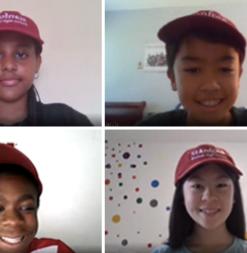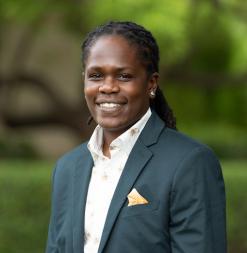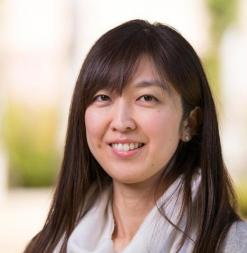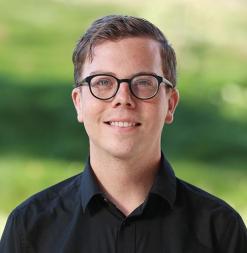Summer
During the summer, Scholars meet each day for a live, virtual classroom discussion led by a Stanford OHS instructor. Scholars experience enriching academics as well as social activities that build community and inspire lifelong learning. Active participation by Scholars ensures a lively community of engaged online learners.
Summer Course:
July 6 – 24, 2026
9:30am – 12:00pm Pacific Time, Monday – Friday
Fall Semester
During the fall semester Scholars meet once a week with their cohort and instructor after school. Scholars participate in course-related discussions and engage in focused workshops offered by the Stanford OHS Office of Admissions, Stanford OHS Academic Advising, and Stanford OHS Writing and Tutoring Center. Workshops are designed to prepare Scholars to apply to and thrive at Stanford OHS and other rigorous schools and programs.
Fall Semester Meetings:
August 26 - December 9, 2026
4:15pm Pacific Time, Wednesdays
Students meet weekly for one hour.
Summer Courses
Democracy & Dissent
What happens when a bold idea changes the world—and puts someone’s life at risk? In this course, we will examine the lives and philosophies of influential dissenters who dared to question the status quo. In the first week, we’ll delve into The Trial and Death of Socrates as recounted by the ancient philosopher Plato. What made Socrates’s philosophical questioning so revolutionary that democratic Athens sentenced him to death for “corrupting the youth?” In the second week, we’ll study the works of more recent dissenters, including Martin Luther King Jr.’s “Letter from a Birmingham Jail.” We’ll explore why King believed in the transformative power of love over hate and how that belief led him to break the law in pursuit of justice. Throughout the course, we’ll grapple with enduring questions about faith, justice and their significance in leading a meaningful life. By the end, students will have refined their critical thinking skills and reflected on their roles as engaged citizens in their communities.
Discovering Geometry: From Flatland to the Fourth Dimension
This inquiry-based geometry course invites Scholars to explore the shapes, patterns, and dimensions that define the world around us - and worlds beyond. Using investigations from Discovering the Art of Mathematics: Geometry, Scholars will move from two-dimensional drawings to three-dimensional models, and then climb the “dimensional ladder” to imagine higher-dimensional spaces. The course emphasizes discovery, collaboration, and creative thinking, teaching Scholars to blend mathematics, art, and technology to build their geometry math skills.
History through Graphic Novels
Graphic novels offer a powerful way to engage with challenging and sensitive topics, presenting complex histories in a compelling and thought-provoking format. Renowned author Michael Schumacher describes graphic novels as “book-length works of sequential art” that transcend traditional genres to include biography, memoir, history, and other forms of nonfiction. This course introduces students to two pivotal moments in 20th-century U.S. history through the lens of graphic novels. We will begin with George Takei’s They Called Us Enemy, which chronicles his childhood in a Japanese internment camp during World War II. Finally, we’ll analyze The Murder of Emmett Till, exploring how his tragic death became a catalyst for the Civil Rights Movement of the 1950s and 1960s. Throughout the course, students will deepen their understanding of these turbulent historical events through captivating narratives and vivid imagery. These stories are not only about the horrific acts committed in the name of war and racial prejudice but also about the resilience and perseverance of individuals who faced unspeakable adversity. Through close analysis of the required texts, engaging class discussions, and reflective writing assignments, students will emerge with enhanced critical thinking skills and a deeper capacity to articulate their thoughts through writing.
Real-Life Applications to Mathematics
In this course Scholars will connect mathematics to real-life scenarios through engaging examples in cryptography and financial mathematics. We will begin by exploring the world of cryptography, decoding and encoding early ciphers such as Caesar’s Cipher. Building on this, scholars will delve into modular arithmetic, progressing through Vigenere’s Cipher to Public Key Encryption, and gaining an introduction to the RSA cryptosystem. Scholars will turn to financial mathematics, tackling practical questions such as: What is the real cost of merchandise when we buy something with a credit card? What is the power of compounding when we are investing? What is a credit score? By the end of the course, Scholars have honed their ability to visualize and solve real-world math problems, equipped with tools to apply mathematical thinking in practical contexts.
Attendance Policy
Summer Attendance
Fall Semester Attendance
Commitment to the Program
Scholars should not have any commitments that conflict with live online class sessions during the summer or fall.
Family Engagement
Parents and legal guardians are invited to support their Scholars by attending orientation and parent engagement events and one Scholar/family conference with SMSSP staff.
Technology Requirements
We will work with students to ensure that they have the technological devices needed to participate in the program, but a reliable and consistent internet connection is required for effective participation. Students may request technical equipment through the SMSSP Device Lending Program upon acceptance to the program.
Online Experience and Platforms
Computer
Show
Hide
Internet Connection
Show
Hide
Headphones and Microphone
Show
Hide
Webcam
Show
Hide
Suitable Learning Environment
Show
Hide
It's been incredible to see SMSSP students build community within their cohorts, engage with academic material from their Stanford OHS instructor, and interact with Stanford OHS student leaders. We have a really special group of students in the program.





